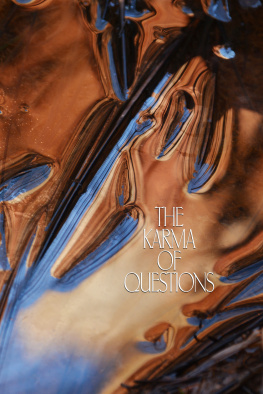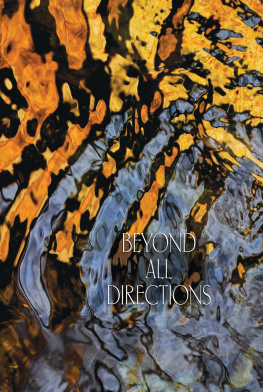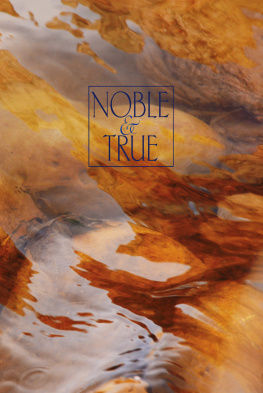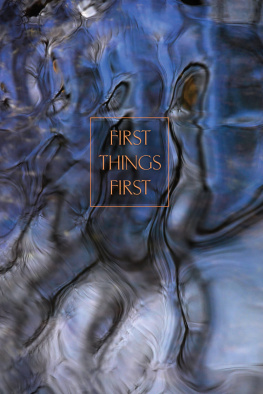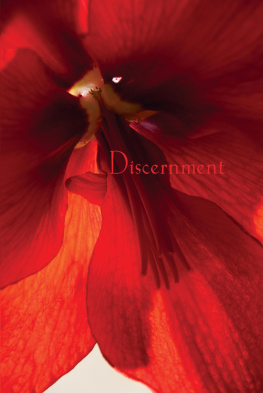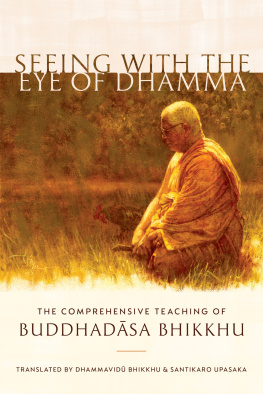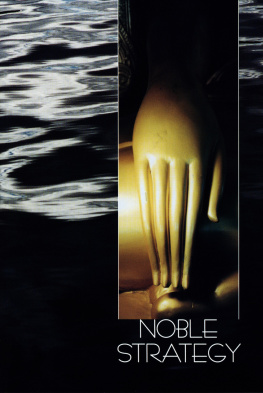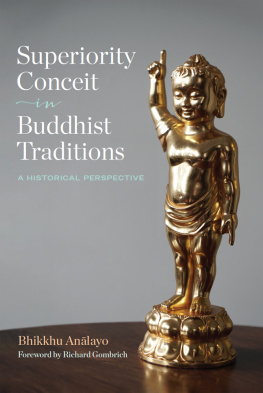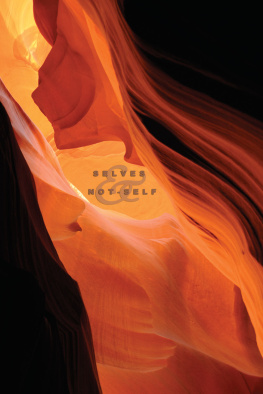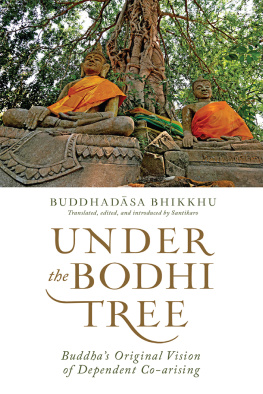Thanissaro Bhikkhu - Head & Heart Together
Here you can read online Thanissaro Bhikkhu - Head & Heart Together full text of the book (entire story) in english for free. Download pdf and epub, get meaning, cover and reviews about this ebook. year: 2010, publisher: Metta Forest Monastery, genre: Religion. Description of the work, (preface) as well as reviews are available. Best literature library LitArk.com created for fans of good reading and offers a wide selection of genres:
Romance novel
Science fiction
Adventure
Detective
Science
History
Home and family
Prose
Art
Politics
Computer
Non-fiction
Religion
Business
Children
Humor
Choose a favorite category and find really read worthwhile books. Enjoy immersion in the world of imagination, feel the emotions of the characters or learn something new for yourself, make an fascinating discovery.
- Book:Head & Heart Together
- Author:
- Publisher:Metta Forest Monastery
- Genre:
- Year:2010
- Rating:4 / 5
- Favourites:Add to favourites
- Your mark:
- 80
- 1
- 2
- 3
- 4
- 5
Head & Heart Together: summary, description and annotation
We offer to read an annotation, description, summary or preface (depends on what the author of the book "Head & Heart Together" wrote himself). If you haven't found the necessary information about the book — write in the comments, we will try to find it.
Head & Heart Together — read online for free the complete book (whole text) full work
Below is the text of the book, divided by pages. System saving the place of the last page read, allows you to conveniently read the book "Head & Heart Together" online for free, without having to search again every time where you left off. Put a bookmark, and you can go to the page where you finished reading at any time.
Font size:
Interval:
Bookmark:
This work is licensed under the Creative Commons Attribution-NonCommercial 4.0 Unported. To see a copy of this license visit http://creativecommons.org/licenses/by-nc/4.0/. Commercial shall mean any sale, whether for commercial or non-profit purposes or entities.
Metta Forest Monastery
Valley Center, CA 92082-1409
U.S.A.
More Dhamma talks, books and translations by Thanissaro Bhikkhu are available to download in digital audio and various ebook formats at dhammatalks.org.
A paperback copy of this book is available free of charge. To request one, write to: Book Request, Metta Forest Monastery, PO Box 1409, Valley Center, CA 92082 USA.
Many people have read earlier versions of these essays and have kindly offered suggestions for improvements. In particular, I would like to thank the monks here at the monastery, as well as Michael Zoll, Jane Yudelman, Barbara Wright, Margueritte White, Ginger Vathanasombat, Donna Todd, Mary Talbot, Donald Swearer, Dale Schultz, Larry Rosenberg, Xiaoquan Osgood, Nathaniel Osgood, Joan Oliver, Andrew Olendski, Bok-Lim Kim, Alexandra Kaloyanides, Jeff Hardin, Gil Fronsdal, Inez Freedman, John Bullitt, and Michael Barber. Any mistakes that remain, of course, are my own responsibility.
Some of these essays, in earlier incarnations, have appeared in Tricycle, Shambhala Sun, The Sati Center Journal, Mandala, Insight Journal, and Buddhadharma. I would like to thank the editors of these journals for their help in making the writing clearer and more coherent. The fact that the essays were originally intended for different audiences explains the overlap that occasionally occurs among them, as well as the inconsistent use of Sanskrit and Pli terms: dharma, karma, and nirva in some essays; dhamma, kamma, and nibbna in others. I hope that this poses no difficulties.
These and other essays on Buddhist practice are available on the Internet at www.accesstoinsight.org and www.dhammatalks.org.
hnissaro Bhikkhu
(Geoffrey DeGraff)
Metta Forest Monastery
Valley Center, CA 92082-1409
December, 2010
These two people are hard to find in the world. Which two? The one who is first to do a kindness, and the one who is grateful and thankful for a kindness done. AN 2:118
In saying that kind and grateful people are rare, the Buddha isnt simply stating a harsh truth about the human race. Hes advising you to treasure these people when you find them, andmore importantlyshowing how you can become a rare person yourself.
Kindness and gratitude are virtues you can cultivate, but they have to be cultivated together. Each needs the other to be genuinea point that becomes obvious when you think about the three things most likely to make gratitude heartfelt:
1) Youve actually benefited from another persons actions.
2) You trust the motives behind those actions.
3) You sense that the other person had to go out of his or her way to provide that benefit.
Points one and two are lessons that gratitude teaches kindness: If you want to be genuinely kind, you have to be of actual benefitnobody wants to be the recipient of help that isnt really helpfuland you have to provide that benefit in a way that shows respect and empathy for the other persons needs. No one likes to receive a gift given with calculating motives, or in an offhand or disdainful way.
Points two and three are lessons that kindness teaches to gratitude. Only if youve been kind to another person will you accept the idea that others can be kind to you. At the same time, if youve been kind to another person, you know the effort involved. Kind impulses often have to do battle with unkind impulses in the heart, so its not always easy to be helpful. Sometimes it involves great sacrificea sacrifice possible only when you trust the recipient to make good use of your help. So when youre on the receiving end of a sacrifice like that, you realize youve incurred a debt, an obligation to repay the other persons trust.
This is why the Buddha always discusses gratitude as a response to kindness, and doesnt equate it with appreciation in general. Its a special kind of appreciation, inspiring a more demanding response. The difference here is best illustrated by two passages in which the Buddha uses the image of carrying.
The first passage concerns appreciation of a general sort:
Then the man, having gathered grass, twigs, branches, & leaves, having bound them together to make a raft, would cross over to safety on the far shore in dependence on the raft, making an effort with his hands & feet. Having crossed over to the far shore, he might think, How useful this raft has been to me! For it was in dependence on this raft that, making an effort with my hands & feet, I have crossed over to safety on the far shore. Why dont I, having hoisted it on my head or carrying on my back, go wherever I like? What do you think, monks? Would the man, in doing that, be doing what should be done with the raft?
No, lord.
And what should the man do in order to be doing what should be done with the raft? There is the case where the man, having crossed over to the far shore, would think, How useful this raft has been to me! For it was in dependence on this raft that, making an effort with my hands & feet, I have crossed over to safety on the far shore. Why dont I, having dragged it on dry land or sinking it in the water, go wherever I like? In doing this, he would be doing what should be done with the raft. MN 22
The second passage concerns gratitude in particular:
I tell you, monks, there are two people who are not easy to repay. Which two? Your mother & father. Even if you were to carry your mother on one shoulder & your father on the other shoulder for 100 years, and were to look after them by anointing, massaging, bathing, & rubbing their limbs, and they were to defecate & urinate right there [on your shoulders], you would not in that way pay or repay your parents. If you were to establish your mother & father in absolute sovereignty over this great earth, abounding in the seven treasures, you would not in that way pay or repay your parents. Why is that? Mother & father do much for their children. They care for them, they nourish them, they introduce them to this world.
But anyone who rouses his unbelieving mother & father, settles & establishes them in conviction; rouses his unvirtuous mother & father, settles & establishes them in virtue; rouses his stingy mother & father, settles & establishes them in generosity; rouses his foolish mother & father, settles & establishes them in discernment: To this extent one pays & repays ones mother & father. AN 2:32
In other words, as the first passage shows, its perfectly fine to appreciate the benefits youve received from rafts and other conveniences without feeling any need to repay them. You take care of them simply because that enables you to benefit from them more. The same holds true for difficult people and situations that have forced you to develop strength of character. You can appreciate that youve learned persistence from dealing with crabgrass in your lawn, or equanimity from dealing with unreasonable neighbors, without owing the crabgrass or neighbors any debt of gratitude. After all, they didnt kindly go out of their way to help you. And if you were to take them as models, youd learn all the wrong lessons about kindness: that simply following your natural impulsesor, even worse, behaving unreasonablyis the way to be kind.
Font size:
Interval:
Bookmark:
Similar books «Head & Heart Together»
Look at similar books to Head & Heart Together. We have selected literature similar in name and meaning in the hope of providing readers with more options to find new, interesting, not yet read works.
Discussion, reviews of the book Head & Heart Together and just readers' own opinions. Leave your comments, write what you think about the work, its meaning or the main characters. Specify what exactly you liked and what you didn't like, and why you think so.


